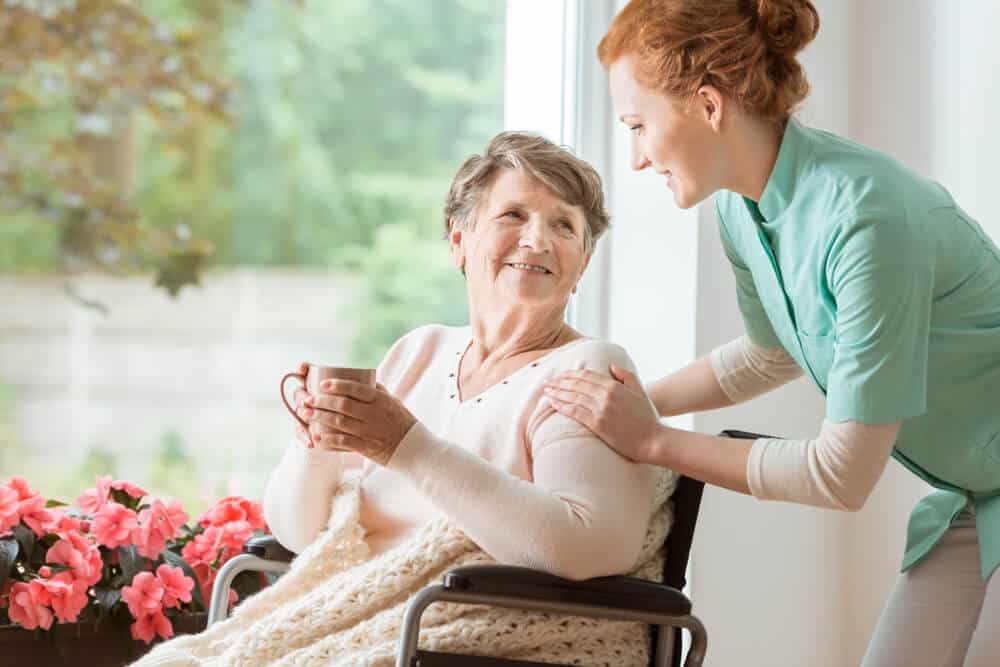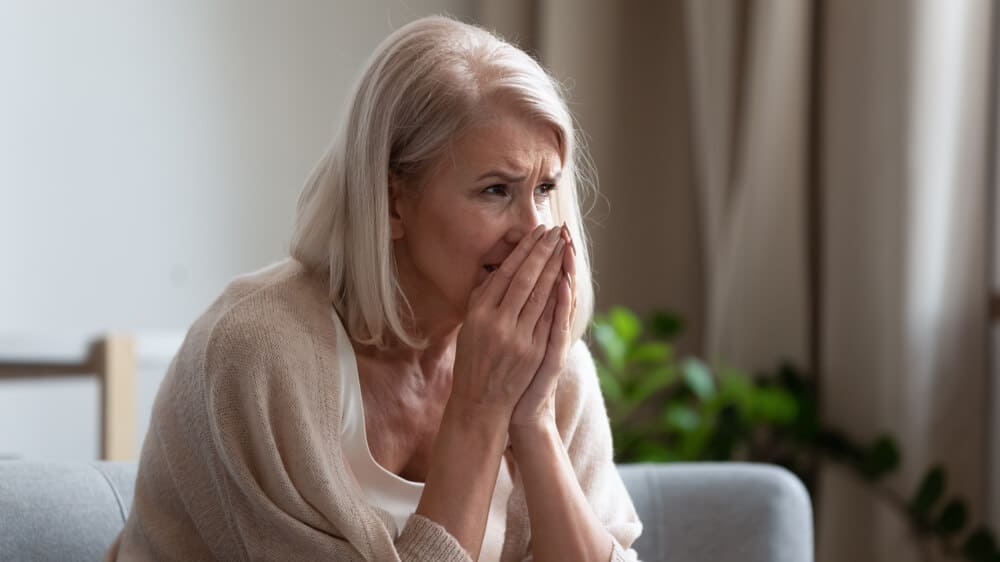
How to Manage Your Mental Health While Caring for Others
44 million Americans care for older adults and adults with disabilities who live in the community. These caregivers receive no pay. Instead, they selflessly dedicate much of their lives to taking care of family members, helping them lead full and happy lives despite physical limitations.
However, as Suzanne Mintz, President and Co-Founder of the National Family Caregivers Association, notes, being a caregiver often results in a large physical, emotional, and financial burden. The responsibility of taking care of an adult at home can negatively interfere with a person’s work, relationships, and self-care.
That’s why it’s essential for caregivers to avoid burnout by proactively taking care of their mental health. Becoming overwhelmed and exhausted prevents caregivers from being able to provide the best possible support to their loved ones. This post will help you understand the role of a caregiver, how caregiving affects a person’s mental health, and how caregivers — whether you or someone you know — can take better care of themselves while caring for others.
Who is Considered a Caregiver?
Caregivers support adults — often family members — who face physical, mental, and emotional challenges, without receiving payment for their work. This unpaid labor force is worth an estimated $306 billion each year, costing nearly twice as much as home health care and nursing home care.
Adults who require care may be older adults who can no longer support themselves without physical or financial assistance from others. They may be people of any age with severe health problems (like cancer or Alzheimer’s disease) or physical or mental disabilities (like paralyzation or Down syndrome) whose limitations prevent them from being able to care for themselves. Or, they may suffer from a severe mental illness that prevents them from being able to work or live independently.
Nowadays, medical advances, shorter hospital stays, poor discharge planning, and home care technology expansion mean that more and more families are becoming responsible for the physical and financial burden of being a caregiver. Caregivers today are asked to shoulder greater responsibility for longer periods of time than ever before. 17 percent of caregivers provide at least 40 hours of care per week — meaning caregiving has become a full-time job.
Most caregivers provide support to these people despite being ill-prepared for their role and having little to no help from others. As much as one-third of caregivers continue to provide intense care to others despite suffering from health problems themselves. Due to spending much of their time away from the workforce, many caregivers do not have health insurance, preventing them from receiving adequate care for their own health challenges.
Caregiving and Gender
The majority of caregivers (60 percent) are women. On average, women caregivers spend as much as 50 percent more time providing care than male caregivers. Many women caregivers are married and employed, yet juggle full-time responsibility for the adult in need of care on top of their work, relationships, and more.
Caregiving appears to hinder women’s status in the workforce. Between raising children and providing care, women caregivers spend an average of 12 years away from the workforce. 33 percent of women caregivers decreased their work hours, 29 percent passed up a promotion or assignment, and 22 percent took a leave of absence due to their responsibilities as a caregiver. 20 percent even switched from full-time to part-time employment, and a full 16 percent quit their jobs altogether. The financial burden can be significant: women who identify as family caregivers are 2.5 times more likely to live in poverty than non-caregivers.
How Caregiving Affects Mental and Physical Health
Caregivers frequently face substantial mental and physical health challenges as a result of their responsibilities. The amount of stress faced by caregivers can take as much as 10 years off of a caregiver’s life, predispose caregivers to develop depression and anxiety, and prevent caregivers from accessing much-needed healthcare.
Caregiving and Physical Health
Caregivers are in worse physical health than those who are not caregivers. About one in ten caregivers reports that caregiving has led their physical health to decline. Caregiving is associated with higher rates of acid reflux, headaches, chronic pain, and obesity, as well as an increased likelihood of developing a severe illness.
One of the reasons for this significant health burden is the impact of caregiving on the immune system. Caregivers have 23 percent higher levels of stress hormones and 15 percent lower levels of antibody responses than those who are not caregivers. This makes caregivers prone to frequent infections and more likely to develop cancer than those who do not provide care to an adult in their family.
Because so many caregivers are women, physical health burdens disproportionately affect females. In fact, studies show that female caregivers experience more physical health effects than their male counterparts.
More than one in four female caregivers reports experiencing poor or fair physical health, compared with 12 percent of the general population. 25 percent report experiencing health problems as a result of their caregiving. The potential effects on women include coronary heart disease (CHD) — women who spend at least nine hours per week providing care double their risk of CHD — as well as high blood pressure, poor immune function, and an increased risk of mortality.
Women who are caregivers may put off or decline preventative health services due to the financial and time constraints of caregiving. One in four women caregivers experiences difficulty accessing medical care. Compared to their peers, female caregivers are twice as likely to skip filling a prescription due to the cost. According to a national survey, 21 percent of female caregivers had mammograms less often due to their caregiving responsibilities.
Caregiving and Mental Health
Caregivers consistently report higher levels of stress and depression than those who are not caregivers. Being a caregiver is associated with emotional effects like anger, frustration, guilt, helplessness, and burnout. As a result, 16 percent of caregivers report feeling emotionally strained and 26 percent of caregivers say caregiving affects their emotional health.
Stress and mental illness associated with caregiving also disproportionately affects female caregivers. Twice as many female caregivers report that stress is always or nearly always present in their lives as male caregivers. Women who provide care for a spouse are six times more likely to develop anxiety or depression as non-caregivers, and women who care for their parents are twice as likely to do so.
The amount of care per week a woman provides to a family member appears to have a direct relationship to the mental health burden she experiences. One study found a marked increase in mental illness among female caregivers who provided more than 36 hours of care per week to a spouse. Social support also plays an important role in the amount of stress associated with the caregiving experience. Elderly women caring for a spouse with dementia are significantly less likely to receive support for their own health issues, despite the fact that women are markedly more vulnerable to the effects of reduced social support than men.
Major depression is a common experience among caregivers, as are anxiety disorders. As much as 70 percent of caregivers have clinically significant symptoms of major depression and 51 percent of women caregivers (combined with 38 percent of the general female population) exhibit symptoms of depression. Depressed caregivers are more likely to have a comorbid anxiety disorder than those without depression. Even when the person receiving care is placed in a nursing home, symptoms of depression and anxiety among caregivers may persist and worsen.
People who acknowledge and take pride in their roles as caregivers appear to be less vulnerable to the mental health effects of caregiving and take better care of themselves. Many women caregivers report an increased feeling of purpose in their lives as a result of caregiving, as well as other benefits like increased autonomy and personal growth.
Self-Care for Caregivers
Depression and anxiety should not be accepted as a normal part of providing care to a loved one. Proactively taking care of your physical and mental health as a caregiver can reduce the burden of caregiving and help you be more present for your loved one in need of care.
It’s important to commit to better self-care and to take breaks from your responsibility as a caregiver. No one can be expected to provide care 24/7. Social support from friends and family, as well as help from professional sources (such as adult daycare facilities, nursing homes, senior centers, and even in-home care companies), can help you find free time to relax and recharge.
The financial burden of caregiving can be significant, but that doesn’t mean you should neglect your physical health. Neglecting preventative healthcare as well as good self-care practices may actually increase your healthcare costs. It’s essential to make sure you get enough sleep, exercise, healthy foods, and water throughout the day to help you show up for your loved one as your healthiest, happiest self. You should also avoid substance use — alcohol and drugs are not a positive coping strategy — and practice relaxation exercises as you are able.
Caregivers must also feel comfortable setting boundaries with the loved one receiving care. Someone receiving care likely cannot do everything themselves, but they should have a clear understanding of what is and isn’t the caregiver’s responsibility. Make sure to always use “I” statements when addressing potential problems or setting boundaries to avoid placing blame on your loved one.
As difficult as it can be, you should also practice saying “no” to avoid overextending yourself, which can make you more prone to burnout. Remember that if you are stressed, burned out, depressed, or anxious, you will not be able to provide the best level of care possible for your loved one — so it’s still important to take care of YOU!

At some point in your life, you may find yourself overwhelmed and in need of professional help as a result of your role as a caregiver. There is no shame in seeking therapy or counseling to discuss your concerns and learn coping techniques to help you become a better caregiver to your loved one. Our trained staff here at The Meadowglade are here to listen without judgment and provide as much assistance as we can to improve your emotional health and help you take better care of YOU.
